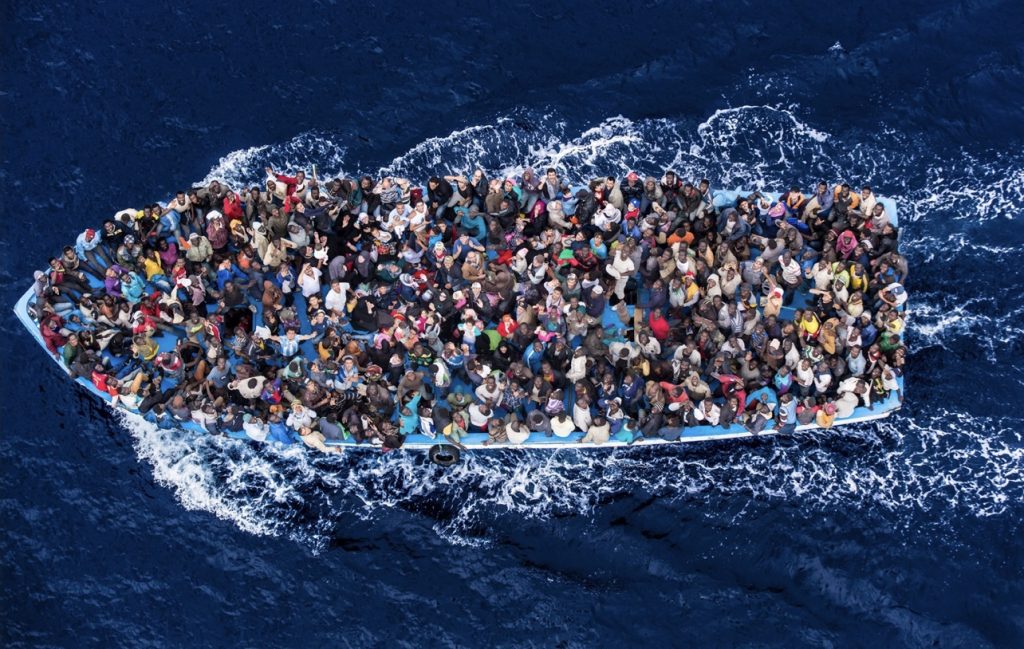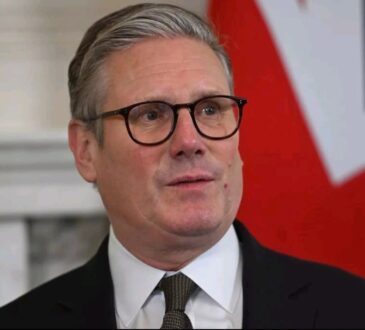Enough Is Enough!! UK Labour’s Plan To Treat Migrant Smugglers As Terrorists Because Of This Reason

UK Labour Party has announced a series of new migration policies aimed at reshaping the nation’s approach to immigration. These policies include closer cooperation with the European Union, ending the use of hotels for migrant detainees, and treating smugglers as terrorists. While the Labour Party claims these measures are necessary for national security, they have come under fire from human rights organizations, labeling them as “toxic.” This is according to a report by European Council on Refugees and Exiles on Friday, 22 September 2023.

The first major pillar of the Labour Party’s new migration policy is the proposal to establish closer cooperation with the European Union. The plan envisions rekindling ties with the EU to create a more coordinated and harmonized approach to immigration. This includes revisiting agreements on refugee resettlement and asylum policies, aiming to distribute the responsibility more evenly among EU member states. Labour argues that such cooperation is essential to address the ongoing migration challenges facing the UK and the continent as a whole.
However, this approach has drawn criticism from those who believe it may compromise the UK’s sovereignty on immigration matters. Skeptics argue that closer ties with the EU might limit the nation’s ability to control its borders and make independent decisions on immigration policy.
Another contentious aspect of the Labour Party’s migration policies is the proposal to end the use of hotels for housing migrant detainees. Instead, the party suggests investing in improved detention facilities designed to meet the specific needs of vulnerable migrants. This policy shift aims to address long-standing concerns about the treatment of detainees, especially those who are vulnerable or at risk. Advocates argue that it will lead to more humane conditions and better protection for individuals in custody.
Human rights organizations, however, have condemned this aspect of the policy, calling it “toxic” and insufficient. They argue that ending the use of hotels does not go far enough to address the systemic issues within the immigration detention system. Critics insist that the entire system should be overhauled to prioritize the well-being and rights of migrants.
Perhaps the most controversial element of the Labour Party’s migration policy is the proposal to treat smugglers as terrorists. The party argues that this tougher stance is necessary to combat human trafficking and protect vulnerable migrants from exploitation. By classifying smugglers as terrorists, the legal framework for prosecution and punishment would become much more severe.
This approach has elicited mixed reactions. Supporters believe it sends a strong message that human trafficking will not be tolerated and could act as a deterrent to potential smugglers. However, human rights organizations have vehemently opposed this move, arguing that it blurs the line between immigration offenses and terrorism, potentially leading to wrongful prosecutions and violations of due process.
In the wake of these policy announcements, an investigation into the Home Office’s handling of vulnerable migrant detainees has revealed what some describe as a “complete failure” to identify and protect those in need. This revelation has added fuel to the fire of criticism against the government’s immigration practices. Advocacy groups are calling for urgent reforms and increased oversight to prevent further harm to vulnerable individuals.
Furthermore, a recent public inquiry into Brook House immigration detention center identified a “toxic culture” within the facility. This finding underscores the urgent need for systemic changes in the treatment of detainees and the conditions within immigration detention centers.
As the Labour Party pushes forward with its new migration policies, the nation remains deeply divided on the best way to address immigration challenges. While some believe these policies are a step in the right direction, others argue that they fall short of adequately safeguarding the rights and well-being of migrants. The debate over the future of UK immigration policy is far from over, with human rights organizations and political opponents vowing to continue their advocacy for a more just and compassionate approach.




